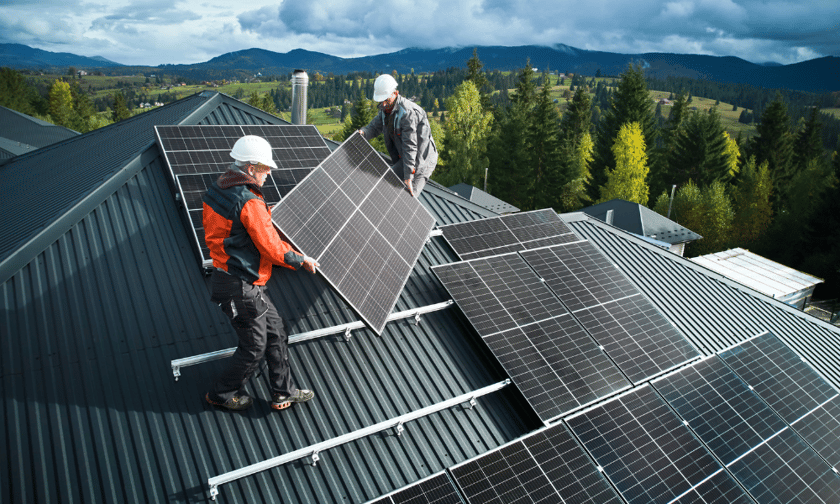

This article was produced with Amwins Group.
Gia Snape of Insurance Business sat down with Niki Carpenter, executive vice president, personal lines, at Amwins Access Insurance Services, about the increasing adoption of solar panels and the implications for risk management and insurance.
As solar energy adoption grows, it’s reshaping not only the way Americans generate power but also the insurance landscape.
While the growth of solar energy represents a pivotal step towards a more sustainable future, it also brings a set of unique challenges for retail brokers and their insureds.
Amwins has been at the forefront of navigating these concerns. The leading wholesale insurance brokerage has developed specialized programs that account for the environmental risks posed by solar panels. Their tailored solutions account for the type of panels as well as the panels’ interaction with the broader grid.
“Amwins addresses the unique challenges posed by solar panels, particularly in Florida, where certain admitted markets are cautious about insuring properties with specific types of panels,” said Niki Carpenter, executive vice president, personal lines, at Amwins Access Insurance Services.
US homeowners are turning to solar as a viable solution to reduce electricity costs and carbon footprints, especially as prices for solar panels have dropped and government incentives have increased.
Solar accounted for 67% of all new electricity-generating capacity added to the US grid in the first half of 2024, according to the Solar Energy Industries Association (SEIA).
However, with this widespread adoption comes complex new considerations for the insurance industry. Each solar panel installation can present distinct challenges, depending on factors like the type of panels used, the method of installation, and whether the system feeds energy back into the grid.
For instance, roof-mounted solar panels, which are the most common, carry a particular set of risks. Improper installation can lead to roof damage, which is a major concern in regions prone to extreme weather events like hurricanes or heavy snowfall. Additionally, panels attached directly to a roof can complicate repairs if a roof is damaged or needs replacing.
Ground-based installations, while eliminating some of the risks associated with rooftop panels, require adequate space and can be more vulnerable to theft, vandalism, or damage from environmental factors. Insurers must consider how these factors influence the overall risk profile of the property.
As solar panel installations increase, insurers are becoming more adept at assessing these risks. Some are now incorporating panel attachment methods into their risk assessments. The sturdiness of the attachment, the age of the roof, and the building materials used all play a role in calculating premiums.
Then there is the question of whether the panels are connected to the grid. Many solar energy systems are “grid-tied,” meaning they feed excess electricity back into the power grid.
This offers benefits for homeowners, who can often receive credits for the extra energy they generate. However, grid-tied systems also bring increased risk in the event of a power surge or grid malfunction, which can cause damage to the home’s electrical systems or the panels themselves.
On the other hand, off-grid systems, which store excess energy in batteries, present a different set of risks. Battery storage can reduce the need for external power sources, but it introduces new hazards related to the batteries’ maintenance, capacity, and potential for overheating.
The complexities of insuring solar-powered properties are perhaps most evident in states like Florida, where weather risks intersect with a rapidly growing solar market. Florida’s weather patterns, particularly the threat of hurricanes, create significant challenges for insurers.
With intense storms becoming more frequent, ensuring that solar panels are secure and resilient against extreme weather has become a top priority.
According to Amwins, understanding these nuances is key to obtaining the right coverage. "We are at the forefront of understanding and mitigating the risks associated with solar energy, ensuring our clients receive the best possible coverage options," said Carpenter.
Amwins is leading the way in providing tailored solutions for solar-powered properties, ensuring that homeowners and businesses can embrace renewable energy without compromising their coverage.
